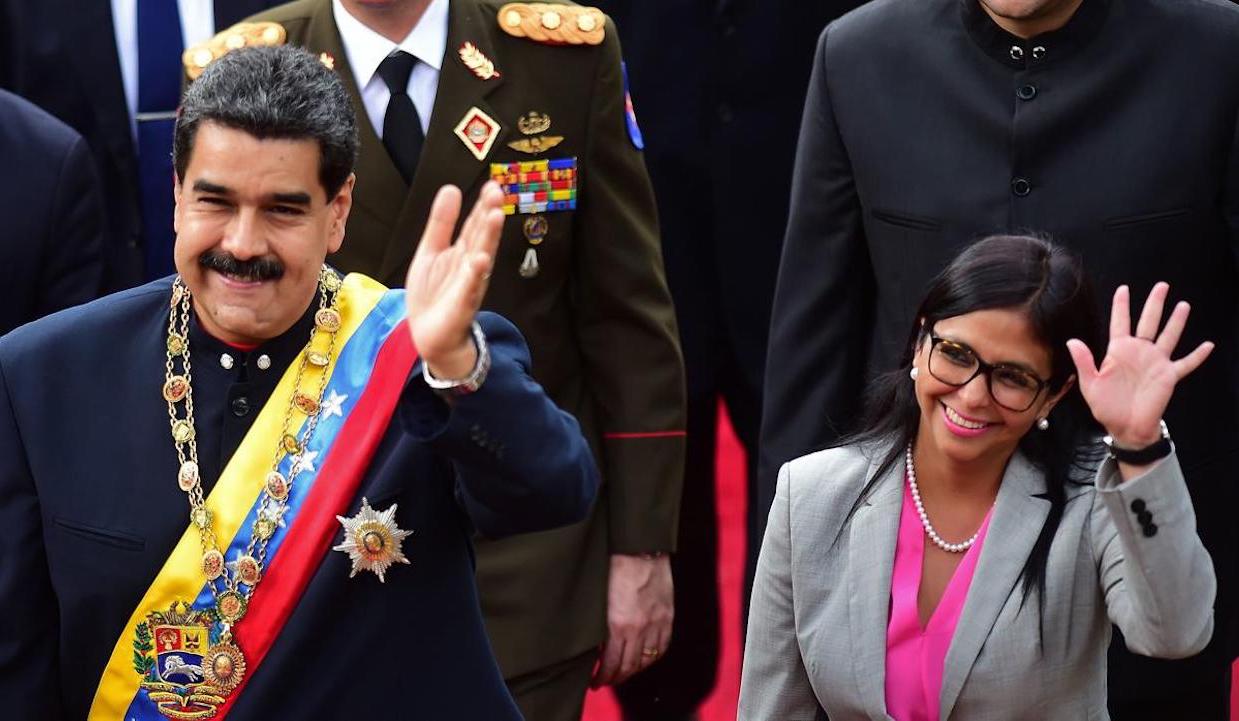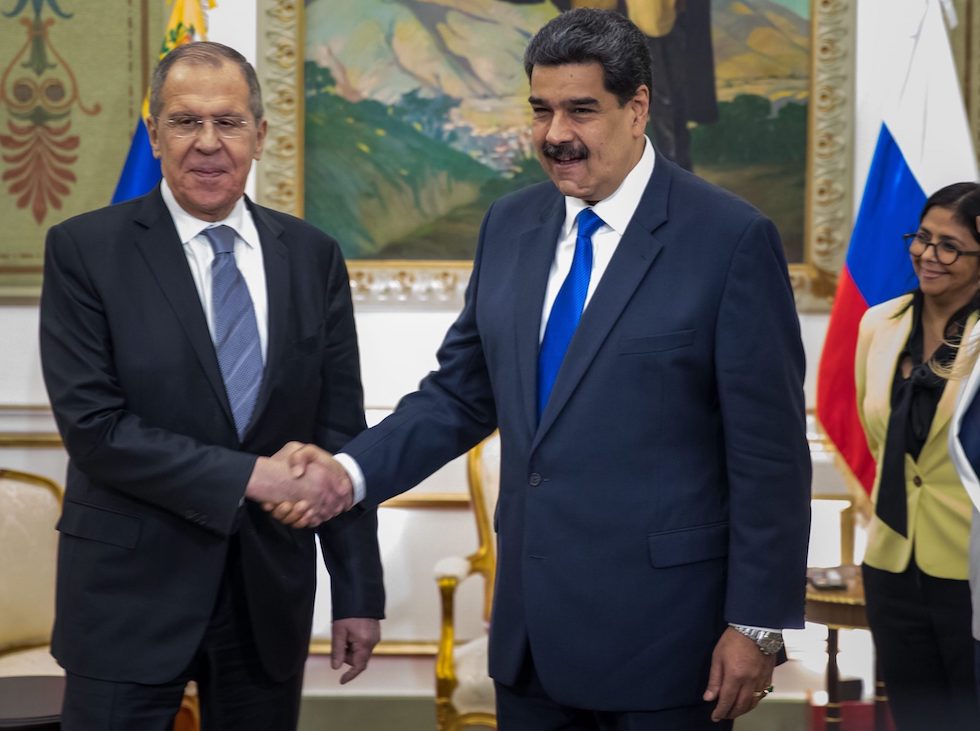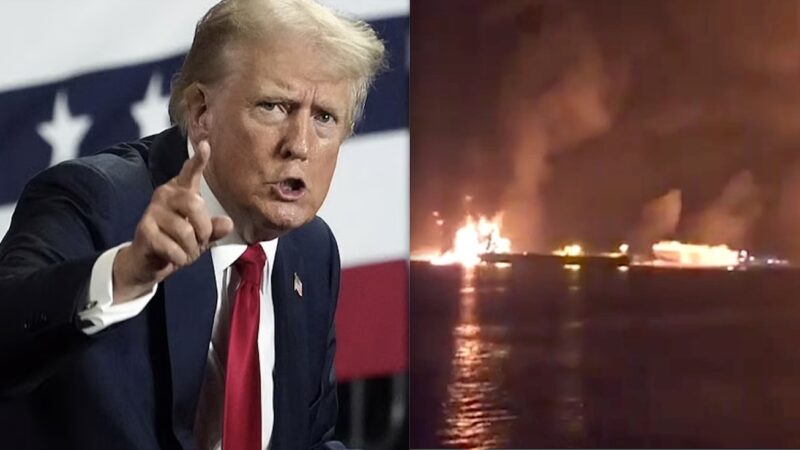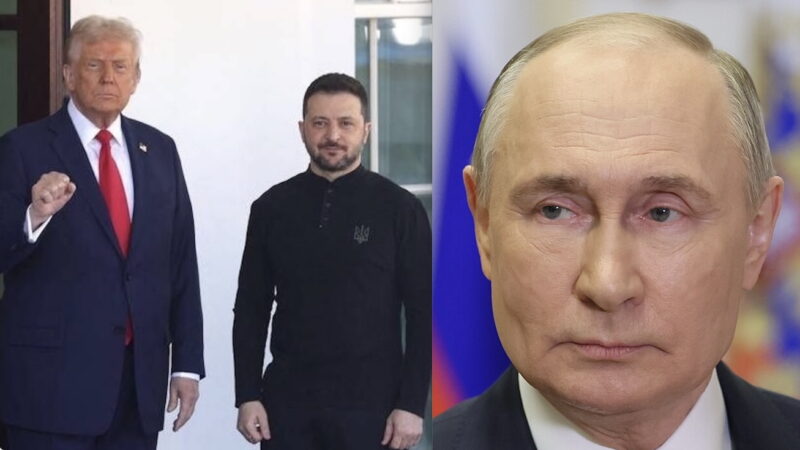“You could see the impact [of sanctions on the country] when the oil production was falling. Since 2015, the losses have amounted to $232 billion. It is easy to say, but the losses of $232 billion in the main revenue source meant back then 99% of the revenue in foreign currency,” Rodriguez stated.
The US has imposed over 20,000 sanctions against 35 countries and has been “waging economic or military warfare against the entire world,” the vice president added. After Washington declared Venezuela a “threat to its national security” in 2015, the West has introduced 929 unilateral sanctions against the Latin American country, with US measures accounting for 60% of all Western sanctions, the high-ranking official also said.
Rodriguez stated that economic warfare against her country is equivalent to systematic human rights abuses since Venezuelan people have been deprived of basic needs, including food, education, healthcare.
In 2015, then-US President Barack Obama declared Venezuela a “threat to the US national security” and ordered the US Treasury Department to freeze foreign property and assets of several Venezuelan officials. Since then, Washington has expanded the sanctions regime against the country.
In 2019, the US imposed comprehensive sanctions on Caracas, especially targeting the country’s oil and financial industries as well as freezing its reserves amid the political crisis in the country as Washington recognized Venezuelan opposition leader Juan Guaido as the country’s interim president instead of re-elected leader Nicolas Maduro.
After Food Imports Drop by 84%, Venezuela Denounces US Sanctions at UN FAO
Venezuelan Minister for Food Carlos Leal Tellería told the United Nations Food and Agriculture Organization (UN FAO) on June, 2021 that the country’s food imports had fallen by a catastrophic 83.7% due to economic sanctions.
Venezuela: Guaido’s Friends ParaMilitary Narcos Tied to Italian Mafia but Trump charges Maduro
“There is a campaign, promoted by the government of the United States and its allies, to systematically assault the Venezuelan people’s right to food,” Leal said, according to Xinhua News Agency. He told the body the sanctions had targeted “most of the country’s international and national food suppliers.”
”These measures [the sanctions] have caused a 83.7 % drop in food imports, thus preventing the international procurement of raw produce, manufactured goods and inputs for agricultural production, as well as sanctioning most international and national companies that supply food to the country”.
Leal noted that in 2015, before the US began imposing sanctions, the FAO had hailed the country’s achievements in food security, hailing Venezuela as a promoter of the right to food and of boasting a successful model.
He noted that the Local Supply and Production Committees (CLAP), begun by Venezuelan President Nicolas Maduro in 2016 to ensure that sanctions didn’t threaten Venezuelans’ food security, were still serving more than 700,000 vulnerable people every month through nearly 3,700 soup kitchens, according to TeleSUR.
Those services are in addition to the roughly 6 million Venezuelan families that receive a box from CLAP every month containing essential products like masa and oil, and have access to heavily subsidized local markets that keep prices low. However, the CLAP program has been heavily dependent on imports to keep it going.
Originally published by Sputnik International
Regime Change & Sanctions: Why None of the Tools of US Foreign Policy Work Against Iran or Venezuela
by Ekaterina Blinova – originally published by Sputnik International on September, 202o
“Our actions today are a warning that should be heard worldwide: No matter who you are, if you violate the UN arms embargo on Iran, you risk sanctions,” US Secretary of State Mike Pompeo stated on 21 September.
VENEZUELA: PER LE SANZIONI DI TRUMP 40MILA MORTI, MOLTI BIMBI
On 19 September, the US unilaterally re-imposed UN sanctions on Tehran through a Joint Comprehensive Plan of Action (JCPOA) snapback mechanism, although the UN Security Council made it clear in August that Washington could not instrumentalise the process, having abandoned the deal in in 2018. In an official statement, Pompeo specified that Washington “took this decisive action” because the Security Council “failed to extend the UN arms embargo on Iran” last month.
“The Security Council’s inaction would have paved the way for Iran to buy all manner of conventional weapons on 18 October,” Pompeo claimed. “Fortunately for the world, the United States took responsible action to stop this from happening.”
Washington’s Allies Don’t Support Its Iran Strategy
“Recently, the United States has pursued erroneous policies in the international arena that have led to a silent boycott of that country, the so-called ‘silent isolation’,” says Mani Mehrabi, an international affairs analyst and member of the scientific board of the Institute of International Relations of the Islamic Republic of Iran.
While at first glance, the United States has many financial, political and military partners in different regions, in practice there is a serious conflict of interests between the White House and many countries, Mehrabi underscores.
This conflict of interests started to manifest itself after Washington unilaterally pulled out of the Iran nuclear deal on 8 May 2018, while the other signatories to the 2015 JCPOA, namely, Germany, the UK, France, China and Russia, continued their efforts to keep the nuclear deal afloat.
Furthermore, on 14 August 2020, the United Nations Security Council rejected Washington’s bid to extend a 13-year global arms embargo on Iran which is due to expire on 18 October under the JCPOA. While 11 members of the international body, including France, Germany and the United Kingdom, abstained, Russia and China opposed the measure. The US was supported only by the Dominican Republic.
After the US State Department declared on 20 August that it would use the JCPOA snapback mechanism to re-impose UN sanctions against the Islamic Republic, Washington’s long-standing allies, the UK, France and Germany (the E3), issued a statement reminding the US that it was no longer a participant in the Iran nuclear deal.
“Our position regarding the effectiveness of the US notification pursuant to Resolution 2231 has consequently been very clearly expressed to the Presidency and all UNSC members,” the E3 countries’ joint statement said. “We cannot therefore support this action, which is incompatible with our current efforts to support the JCPOA.”
“In this situation, the ability of the United States to exert any serious influence on countries whose ideology does not meet their requirements has significantly decreased,” observes Mani Mehrabi.
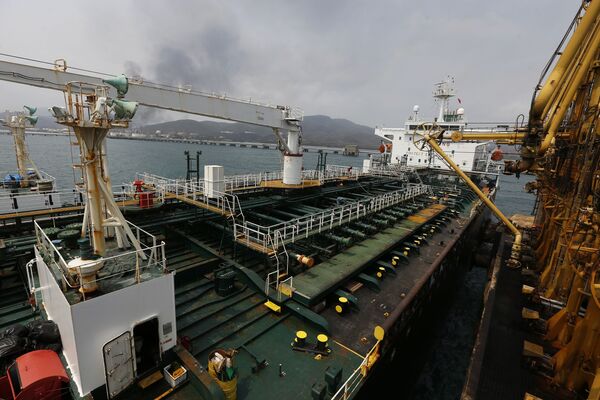
Washington’s Instruments: Coup d’Etat & Sanctions
The US now has only two instruments to exert pressure on the “rogue” countries, according to the Iranian analyst: first, a regime change effort; second, sanctions.
However, it appears that both US foreign policy tools do not actually work, Mehrabi admits.
“Both were applied to Venezuela, and in particular to Nicolas Maduro,” he says. “If we talk about regime change, there was an attempt to bring Juan Guaido to power in Venezuela. If we talk about sanctions, then we can observe their ‘effectiveness’ already now. The United States acted as everyone expected from them, while Maduro’s policy, which is close to Tehran, forced the White House to mobilise all its forces to confront Iran’s friend in South America.”
Last spring and summer, Iran and Venezuela openly defied the US sanctions regime by stepping up bilateral energy cooperation and trade. Thus, in May 2020 Tehran dispatched five oil tankers, carrying 1.53 million barrels of Iranian gasoline, to Venezuela amid energy shortages and an economic crisis in the Latin American state. Yet another Iranian tanker was sent to Venezuela in June.
On 13 September, Bloomberg reported that an Iranian oil tanker which supposedly turned off its satellite signal on 7 August, “started unloading about 2 million barrels of South Pars condensate at Venezuela’s state-controlled port of Jose” on 12 September.
For its part, Venezuela’s premier supertanker, the Ayacucho, reportedly re-registered in Russia, and was renamed the Maximo Gorki, in May 2020 to get around US restrictions and continue its operations. Washington imposed sanctions on the Ayacucho and nearly two dozen vessels in February 2019 as part of its crackdown against the Maduro government. In late January 2019, the Trump administration hailed the regime change attempt in the Latin American country and recognised self-declared interim president Juan Guaido.
Ekaterina Blinova – originally published by Sputnik International on September, 202o

